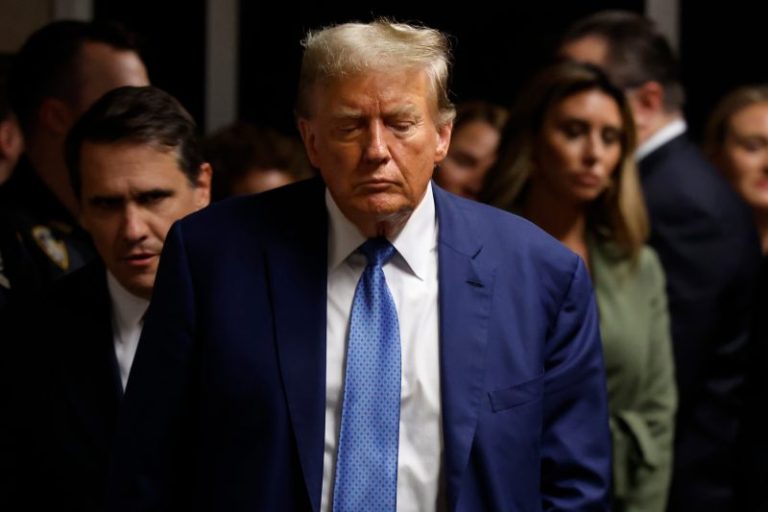NEW YORK — Lawyers for Donald Trump this week asked a judge to delay sentencing scheduled Sept. 18 for the former president on his criminal convictions on 34 counts of falsifying business records until after the election in November.
The sentencing in the case involving hush money payments to an adult-film actress is set two days after New York Supreme Court Justice Juan Merchan is to rule on whether a U.S. Supreme Court decision that broadly defined presidential immunity should influence Trump’s conviction.
Trump’s attorneys wrote in a letter to Merchan dated Wednesday that the short turnaround between the justice’s Sept. 16 immunity decision and the sentencing puts Trump’s team in an unfair position that would hamper his ability to pursue appeals or other legal avenues.
Trump, the Republican nominee for president, was originally supposed to be sentenced July 11. Merchan postponed the date to give the defense time to argue that the conviction and the indictment should be thrown out because the process was poisoned by evidence related to the former president’s official White House acts.
Trump lawyers Todd Blanche and Emil Bove said the timeline set by Merchan means that the prosecution will likely file a damaging sentencing memo around the time of the immunity decision even though there’s a chance the guilty verdict will get tossed out.
“The requested adjournment is also necessary to allow President Trump adequate time to assess and pursue state and federal appellate options in response to any adverse ruling,” Blanche and Bove wrote, adding that a day “is an unreasonably short period of time” for Trump to begin appeals or other legal maneuvers if Merchan rules against him on immunity.
Manhattan District Attorney Alvin Bragg’s office declined to comment Thursday.
A jury found Trump guilty in May of attempting to cover up the nature of hush money payment to adult-film actress Stormy Daniels in the lead-up to the 2016 election while his campaign was scrambling to mitigate the impact of other sexual scandals.
Daniels was paid $130,000 to keep quiet about her claim that she had a sexual encounter with Trump in 2006 at a celebrity golf tournament where the pair where photographed together. Trump denies that an encounter occurred.
Blanche and Bove have argued that much of the prosecution’s case relies on documents and testimony that is out of bounds given the standards that the Supreme Court set in its July 1 opinion. Prosecutors have said that the case is strong enough without those aspects to hold up a conviction on which Trump faces up to four years in prison.
Trump’s attorneys have said Trump’s election obstruction case in D.C. shows that Merchan’s timeline is problematic. In that case, which was the impetus for the Supreme Court ruling, Judge Tanya S. Chutkan is not expected to set a schedule for new motions related the high court’s ruling until Sept. 5, making it essentially certain that a trial would not take place before the election.
The lawyers wrote that “setting aside naked election-interference objectives, there is no valid countervailing reason for the Court to keep the current sentencing date on the calendar. There is no basis for continuing to rush.”

